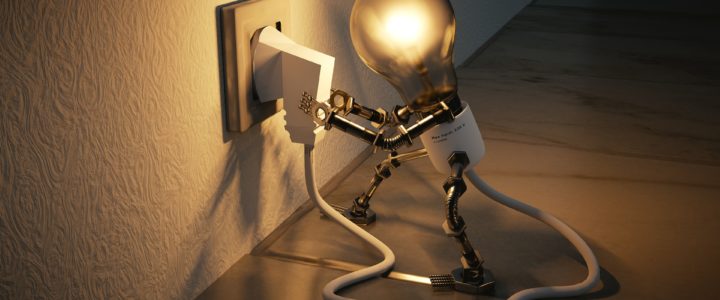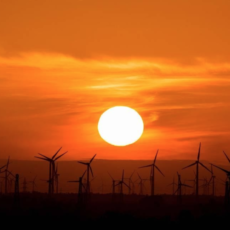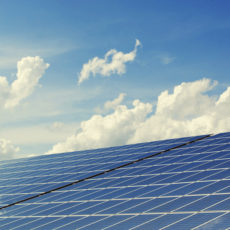
You might have noticed, the cost of living is rapidly increasing. This is across all aspects of life – groceries, eating out, transport, education, travel – and energy. People are questioning activities in their daily lives to try to reduce expenses in all areas. Thankfully, governments, private businesses, and individuals are all increasing their education about energy conservation and the multiple ways it can positively affect the world around us. Efficient use of energy leads to less pollution, less fossil fuel usage – but right now, it can also lead to an optimized cost of operation, be that in your business or your home.
There are energy efficiency tools and infrastructure which require the input of funds up front. Governments and companies are forging ahead with such equipment – which is hugely beneficial for our planetary decarbonization efforts. But for individuals, despite being better in the long run, right now is a challenging time to implement energy efficiency upgrades, like installing roof top solar or a heat pump. With the cost of access to energy at a lifetime high, and the number of people on the breadline and just managing to survive also at a high, disaster is looming for tens of thousands of people who’s budget will be torn apart in the upcoming Northern Hemisphere winter.
So here are some energy conservation and efficiency tips which you can implement right away to start saving your coin. Yes, some of them seem simplistic – but at this point in our lives, every little bit really does count!
General Tips
# Turn off everything at the wall when you’re not using it – this includes your TV, lamps, toaster, coffee machine, microwave…ALL of it!

# Make the change to LED light bulbs for every fixture you can. Yes, this does require a small up front cost, but it is small enough that most people can manage it. Especially if you switch to LED once your old bulbs blow, when you’d need to replace them anyway.
# Use your oven to cook things in batches, so you’re using it less often – the heating up and cooling down phases are often long and considering you can’t use the oven during these stages, it’s energy intensive for nothing. Once you’ve baked a few quiches or pies or lasagnas, you can attend to the reheating in a microwave or under the grill. Then you can serve them with steamed veggies rather than baked, or a leafy salad.
# If you can access your hot water heater, turn it off whenever you leave the house.
# Run your washing machine on cold water and use a short cycle. These actions have the additional bonus of producing less fiber shedding, which is important to keep them out of our waterways. We chatted about this here.
# Switch lights off every time you leave the room. Make as much use of natural light as you can, and if that’s not feasible use lamps instead of ceiling lights. Using sensor lights are another way to help make the light switch thing easier – especially if you have children. And for outdoor spaces use solar powered lights.
# If you have kids and read at bedtime, do this by torchlight. This will raise the cozy factor and also help them in their wind down prep for sleep.
# Avoid using a clothes dryer for anything except large things, like bedding. Even in winter – it might take a little longer, but your clothes will dry inside. If you do need a clothes dryer, don’t use your combo washer/dryer – this is very inefficient and energy intensive on the dryer setting. Instead seek out a laundromat – their machines are larger and more efficient.

# Turn your fridge and freezer down a notch or two – especially in winter. And keep them both filled as much as you can…even if only with water/ice. When you’re defrosting food put it in the fridge – this will keep that temperature lower and the motor will have to kick in less.
# Replace the seals on your oven, fridge and freezer.
# Find an energy provider which allows you to monitor your usage. Discover when it’s highest, and then make adjustments. (Double bonus points for using a provider which invests in and uses renewable energy, obvs!).
# Take shorter showers, and/or less of them – this offers money saving from both energy and water! Maybe sing only one song, you beautiful Diva!. And while you wait for your water to get warm enough to jump in, collect the water in a (clean) bucket or saucepan for use later – on your garden, for cooking or for drinking. You can also switch off the water while you shampoo/condition your hair and shave.
# Try a few nights per week without lights…and use candles instead. Increase the romantic energy while lowering the expensive energy!
# Make a big pot of coffee or tea in the morning and then store it in a thermos during the day, to prevent lots of kettle boiling/coffee machine action.
Warmer Weather Tips

# Open windows to allow for movement of air overnight when the air is coolest. And during the hottest part of the day keep windows closed and the blinds/curtains drawn, to help keep the warm air outside.
# If you have one, you could repurpose your car windshield sunshade to reflect sun from your most westerly facing window.
# Ditch the AC. If you own your home, installing ceiling fans will pay dividends right away, costing about $0.05 per hour to run! If you’re renting, or can’t invest in ceilings fans at the moment, pedestal or desk fans are the way to go. If do *really* need to use the AC, please never leave it on while you’re out to keep your place cool for your arrival home. Yes – some people do this. Even if they’re away for the weekend.
Cooler Weather Tips
# Improving your home’s insulation is a huge factor for keeping warm (and saving money) in winter – but this is costly up front. So if it’s out of reach, consider securing blankets over your windows at night and use towels to fill the gaps under doors – you don’t need to buy purpose built so-called snakes.
# If you use heating in the winter, turn it down a few degrees. You’ll likely find that you just don’t need it as high as you’ve been used to. 18° C to 20° C (64° F to 68° F) is warm enough. But the best option is always more clothes. Layering from the base of a singlet/spencer will have a good impact.
# Have some blankets on the sofa – if they’re readily in reach it’s more appealing to use them instead of your heater.

# In the words of the truly wonderful performer and beautiful soul Olivia Newton-John, Get Physical. In the cooler months, do some physical activity in your home to warm up. Lift weights (homemade is fine…lockdowns showed us this was possible!), do yoga, or even have a massive dance to your favorite tunes! This lets you keep the thermostat down AND does wonders for your wellbeing.
Phew!! Well, that’s a lot of energy conservation tips! But I’m sure there are other ideas that you might know too. We’d love you to share them with us! This is a journey, as we always say, and every step taken in the right direction is a good one. We can’t do everything all at once, but we sure can do SOMEthing! These actions will all help to reduce your household energy consumption and therefore your energy costs…and that might currently be as important a thing as it’s ever been



